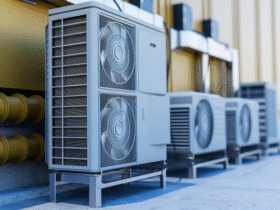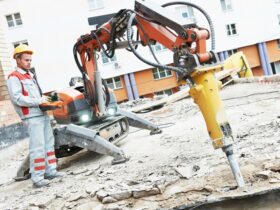What could be continuously lurking in your industrial workspace, posing a significant threat that often goes undetected? What could be the invisible peril affecting the health of your workforce and potentially limiting productivity? The answer lies in the nearly invisible dust particles that pervade the air in most industrial environments.
These tiny infiltrators do more than just dirty surfaces, but also pose significant health hazards and can even ignite if not properly managed. An unclean and unsafe working environment isn’t something any of us would relish, but what can be done about it? This is where industrial dust collectors come into the equation. These more-than-useful pieces of equipment can pick up minute dust particles, improving air quality in your workspace and mitigating health risks.
Industrial dust collectors prove to be an essential piece of equipment for many reasons. In this blog post, we will delve deeper into the importance of these machines, evaluating the factors that contribute to their effectiveness, the different types available, and the inherent advantages and potential drawbacks of their use.
The Hidden Peril: Understanding Industrial Dust
For the uninitiated, dust may appear unharmful. However, chronic exposure in industrial settings can lead to serious health issues, including respiratory problems and even chronic lung diseases. It also presents a significant fire hazard, with combustible dust being a leading cause of industrial explosions.
Furthermore, dust can damage machinery, clog vital systems, and reduce visibility, leading to decreased productivity and increased maintenance costs. Therefore, a comprehensive understanding of industrial dust is crucial for your business’s safety and bottom-line.
Industrial dust collectors serve as a vital line of defense, effectively filtering and collecting dust particles to ensure a safe and efficient working environment.
The Various Types and Their Specific Uses
Industrial dust collectors come in a myriad of types and designs, each tailored for specific industrial requirements. There are baghouse collectors, cyclone collectors, cartridge collectors and downdraft tables, to name a few.
Each model has a particular strength, whether it’s dealing with large dust particles, handling high volumes of dust, or removing particles from highly sensitive environments. Knowing which type suits your industry can result in both more effective dust collection and cost savings.
The Benefits: Decreased Health Risks and Increased Efficiency
The power of a well-operated industrial dust collector cannot be overstated. These machines protect your workforce from harmful dust-related health issues, potentially preventing long-term ailments and reducing illness-related absences.
Not only are these kick-butt machines health saviors, but they also increase efficiency within the workspace. They prevent dust accumulation on machinery, leading to decreased maintenance needs and increased machine lifespan.
Potential Drawbacks and How to Overcome Them
Like all things, industrial dust collectors come with a few drawbacks. They require regular maintenance to continue operating efficiently, and initial setup costs can be significant. However, the return on investment through decreased health risks, lower maintenance costs, and improved productivity usually far outweighs these initial expenses.
Through careful planning, regular maintenance, and smart usage, these drawbacks can be efficiently managed.
Future Developments in Dust Collection Technology
Always evolving, dust collection technology continues to advance, seeking to improve efficiency and functionality while minimizing environmental impact. With a growing emphasis on clean energy and sustainable practices in the industry, the future of dust collection technology promises to be eco-friendlier, smarter, and even more beneficial to your business.
Conclusion: Breathing Easier With Industrial Dust Collectors
The importance of industrial dust collectors in safeguarding the health of employees, maintaining machinery and promoting overall productivity is clear.
It’s a worthy investment, regardless of initial setup costs, as it often pays for itself in the long run. Future developments in the field promise to bring even more benefits to the table. As the saying goes, ‘health is wealth,’ and nothing could be more fitting in this context.
Understanding the functions, benefits, and potential drawbacks of industrial dust collectors can help businesses make informed decisions, maintaining a clean, safe, and efficient work environment for everyone involved.










Find Us on Socials